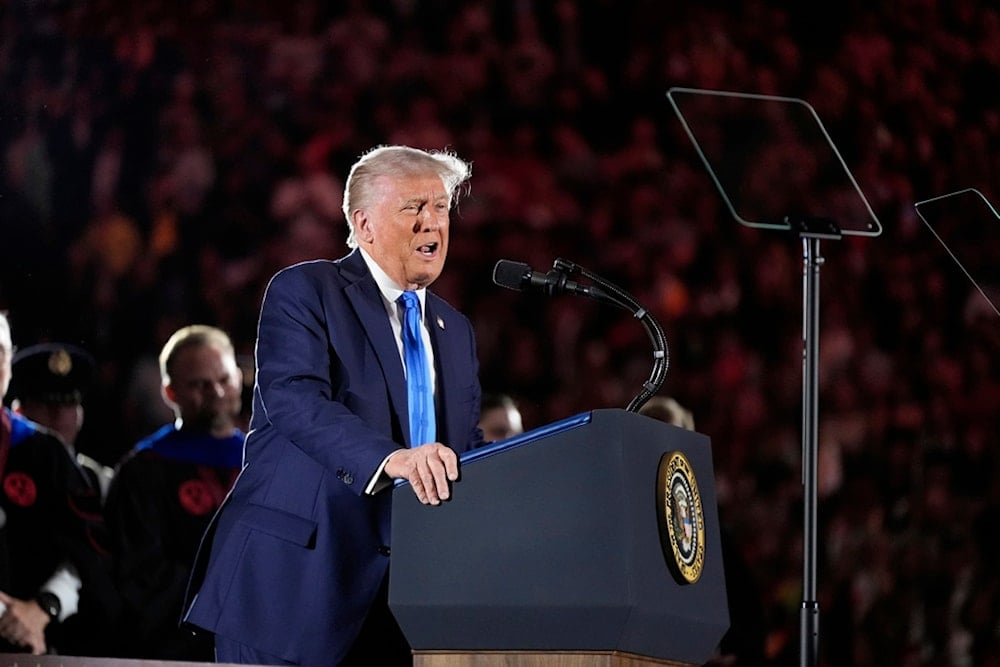Trump says unsure on due process rights for undocumented migrants
When asked whether he agreed with Secretary of State Marco Rubio's statement that "of course" everyone in the US is entitled to due process, Trump replied, "I don't know. I'm not, I'm not a lawyer. I don't know."
-

President Donald Trump gives a commencement address at the University of Alabama, Thursday, May 1, 2025, in Tuscaloosa, Ala. (AP Photo/Manuel Balce Ceneta)
In a recent interview with NBC's Meet the Press, US President Donald Trump questioned whether due process protections under the US Constitution apply to all individuals within the country, including undocumented immigrants.
The interview, conducted Friday and set to air Sunday, featured questions from host Kristen Welker about legal safeguards amid the administration's intensifying deportation drive.
When asked whether he agreed with Secretary of State Marco Rubio's statement that "of course" everyone in the US is entitled to due process, Trump replied, "I don't know. I'm not, I'm not a lawyer. I don't know."
He added, "We'd have to have a million or 2 million or 3 million trials," suggesting that full legal hearings for each migrant would be impractical. Nonetheless, he stated, "They are going to obviously follow what the Supreme Court said," referring to his legal team.
WELKER: Your secretary of state says everyone who's here, citizens and non-citizens, deserve due process. Do you agree?
— Aaron Rupar (@atrupar) May 4, 2025
TRUMP: I don't know. I'm not a lawyer. I don't know.
WELKER: Don't you need to uphold the Constitution?
TRUMP: I don't know pic.twitter.com/xRwDh8sm0X
Due doubts
Trump's remarks follow a series of legal challenges targeting his administration's use of the rarely invoked 1798 Alien Enemies Act to expedite removals.
On April 19, the Supreme Court issued a temporary order blocking the deportation of a group of Venezuelan nationals accused by federal authorities of gang affiliation. The administration has asked the justices to lift or narrow that ruling, arguing in court filings that affected individuals had received notice and sufficient time to appeal.
In a separate case, the Court on April 10 directed the government to facilitate the return of Kilmar Abrego Garcia, a Salvadoran man mistakenly deported despite a standing judicial order against his removal. Abrego Garcia remains detained in El Salvador, and a federal judge is now demanding a detailed update on what the administration is doing to secure his return.
Civil liberties advocates have sharply criticized Trump's uncertainty over constitutional protections. Legal scholars note that the 5th and 14th Amendments have long been interpreted to guarantee due process to all "persons" on US soil, regardless of immigration status.
Read more: Trump targets sanctuary cities, immigration policy in executive order
During the same interview, Trump also responded to growing speculation about a possible third term. "It's not something I'm looking to do," he said. "It's something that, to the best of my knowledge, you're not allowed to do."
His response reflects the constitutional limit imposed by the 22nd Amendment, which prohibits any individual from being elected president more than twice.

 3 Min Read
3 Min Read








